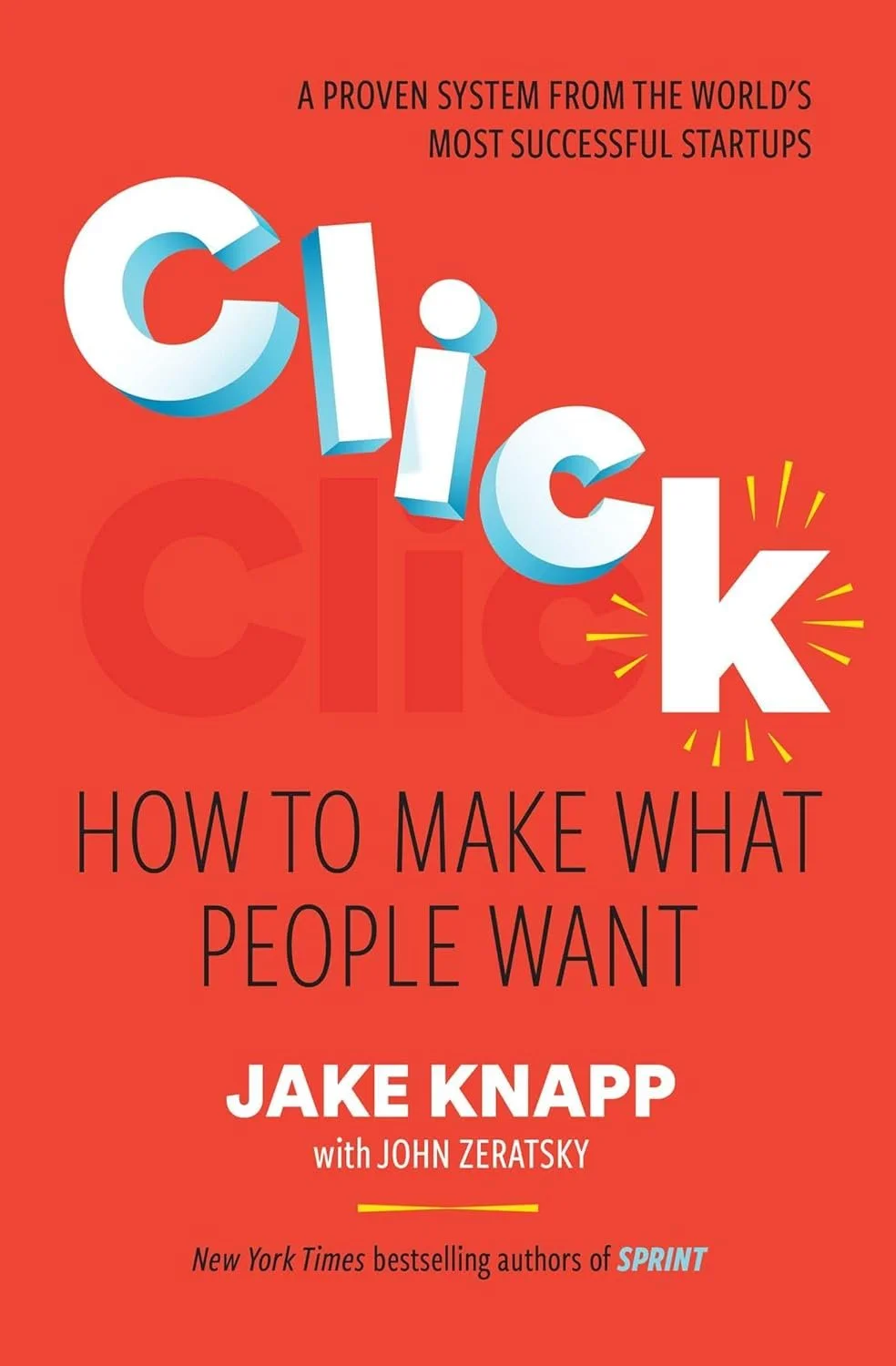It’s summertime — the perfect excuse to kick back with a good book by the beach or pool 🏖️
I try to keep my reading queue fairly well diversified, with a nice blend of non-fiction and business books. (More recently, I’ve also incorporated some science fiction, which I’ve realized has been sadly absent from my reading diet over the years.)
I recently wrapped up the new and excellent Click by Jake Knapp and John Zeratsky.
As a follow-up to their previous book Sprint — a day-by-day recipe for helping cross-functional teams build a prototype in a week — Click takes on a more strategic set of product questions much earlier in the process.
BTW, the Design Sprint framework is one I’ve successfully used in the past. A few years ago, I even brought in a Google representative to workshop it with my teams. It’s a great way to test new ideas, quickly arrive at solutions to customer problems, and get key stakeholders actively involved.
In the new book — the title refers to making products that “click” with customers — the authors take a step back to help position an initial business or product idea for success upstream of a Design Sprint.
Think of it as a bit of a prequel. The frameworks essentially complement each other in this order:
Click’s Foundation Sprint
Design Sprint (rinse and repeat, as necessary)
Design Sprint (rinse and repeat, as necessary)
With Click, the authors introduce ten key considerations, drawing on firsthand experience and real-world examples from their time at Google and in advising multiple startups through their venture capital work.
Some of the advice is pretty obvious and tactical, such as…
Drop everything and sprint on the most important challenge until it’s done.
Get real about the competition.
… while other recommendations are a little more strategic and thought-provoking. My personal favorites include:
Use practical principles to reinforce differentiation.
It’s just a hypothesis until you prove it.
I especially appreciated their emphasis on establishing sound product principles, which is something many teams either craft lazily or dismiss altogether.
I can’t tell you how many times I’ve seen a lack of strategic context, a shallow understanding of the customer— or a projection of themselves as the customer — and unspoken assumptions lead to wasted and expensive development efforts.
These touchstones aren’t just important early on; they’re even more critical as a company grows, helping to ensure that decision-making scales effectively.
I often see teams racing ahead — securing development resources, refining ops processes, and startups even designing logos and purchasing clever URLs — all without first achieving clarity on what their core product offering is. It’s as if they assume all that other stuff can be figured out later, after the product is launched 😳
As an example, I’m currently working with an early-stage startup that was initially laser-focused on how to build exactly what they envisioned and how much that would cost. While they had a general idea of the domain’s problem space, they hadn’t yet answered the essential questions: Who is the actual customer, what do they need, and what will they actually pay for?
The authors see prototyping and validating ideas early as a key way to learn about those things; not by launching a product to see whether it is viable.
They even refer to product-market fit as “business jargon for a bunch of individuals who have something in common — or a problem — that we can sell stuff to. Why not learn as much as you can about them?”
Great question.
And so I recommend Click. It’s a quick read, can be used as a handy reference that you pick up when needed, and the hardcover edition is elegantly designed.
Perfect for those poolside summer reading breaks 😎
Marc
P.S. Bonus Round
Speaking of principles, the authors unearthed a few gems. The following are from Apple — and go all the way back to 1977:
Understand customer needs better than any other company
Eliminate unimportant opportunities
People DO judge a book by its cover
Good stuff.
